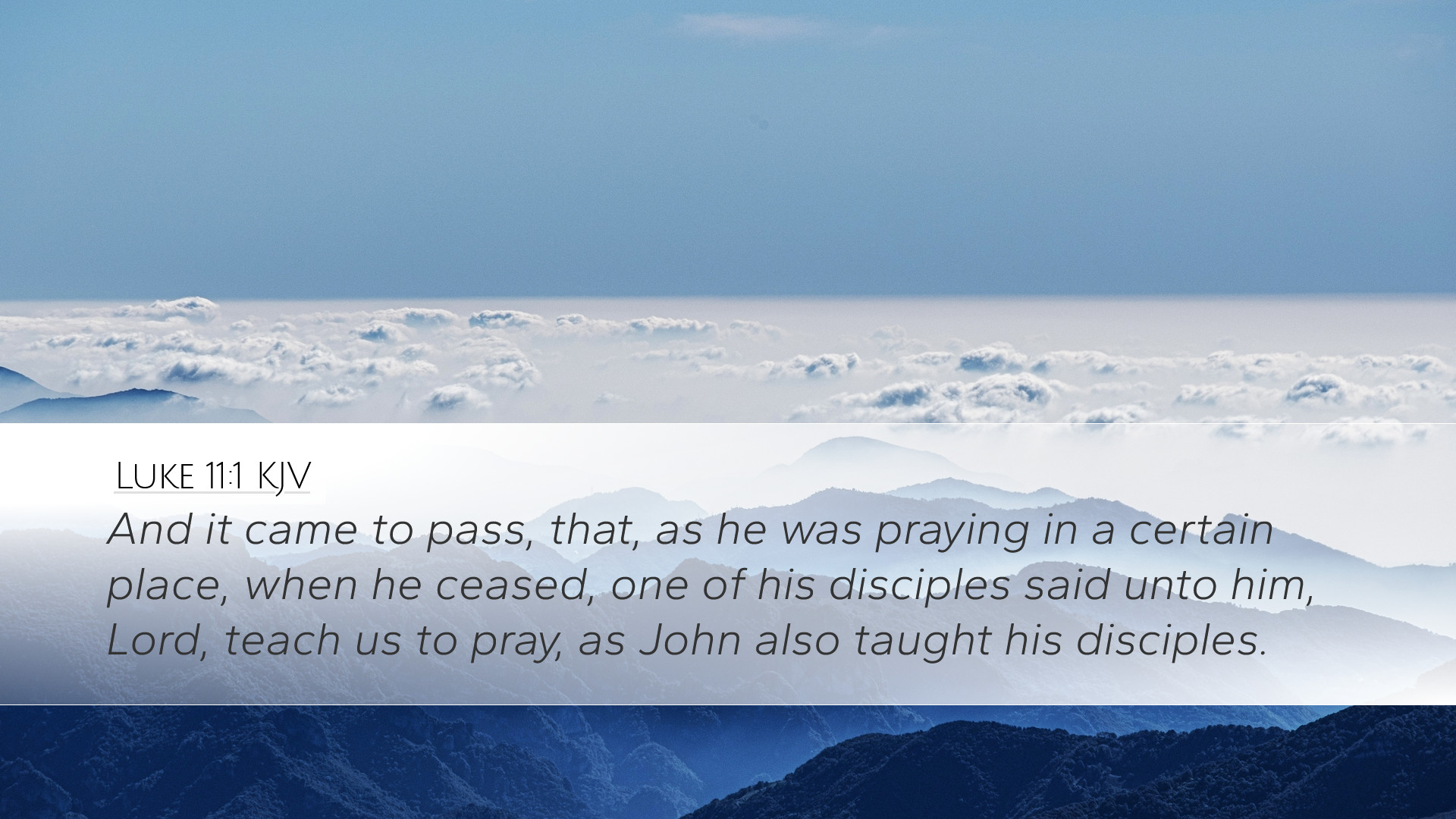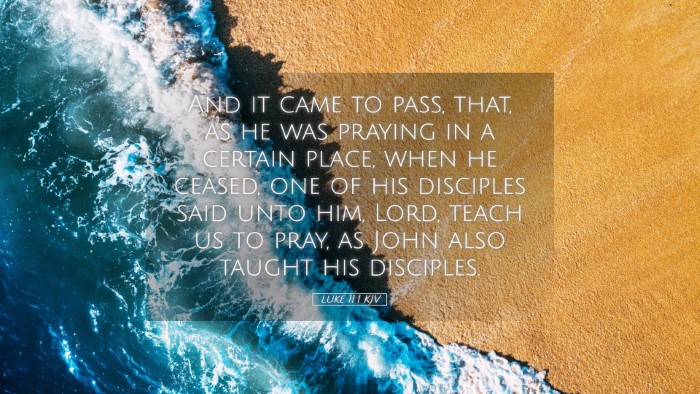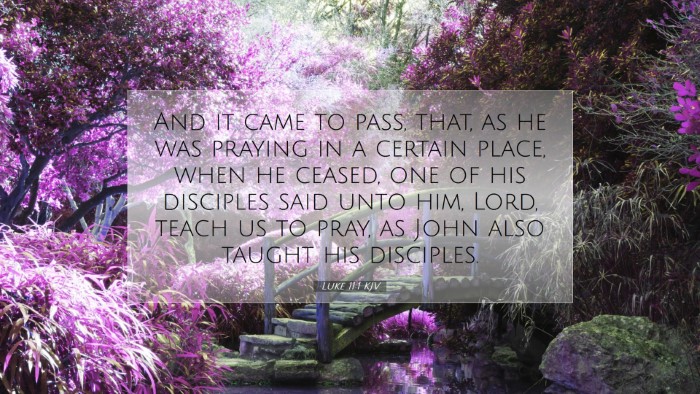Commentary on Luke 11:1
Verse: "And it came to pass, that, as he was praying in a certain place, when he ceased, one of his disciples said unto him, Lord, teach us to pray, as John also taught his disciples."
Introduction
This verse marks a pivotal moment in the interaction between Jesus and His disciples. It underscores the importance of prayer in the life of a believer and reflects a common desire among the faithful to deepen their understanding and practice of this vital discipline. The request from the disciple indicates a recognition of Jesus' unique relationship with God, prompting a desire to emulate His prayer life.
Contextual Analysis
Jesus had just finished praying, an act that reveals His dependence on the Father and the intimacy of His relationship with God. The setting is significant; it is in a certain place, implying the sacredness of private prayer. This specificity hints at the notion that prayer is both personal and profound.
Insights from Commentaries
Matthew Henry's Commentary
Henry emphasizes the disciples' request to learn to pray, which reveals their understanding of prayer's importance. He notes, "To pray is both a duty and a privilege." He further explains that the disciples likely observed Jesus at prayer and were moved by His devotion and communion with God. This prompted them to seek instruction, echoing the sentiment that genuine prayer should be cultivated and learned.
Albert Barnes' Notes
Barnes highlights the disciples' need for a teacher, pointing out that John the Baptist taught his followers to pray, which was a common practice among the Jewish leaders of the time. He notes, "It was not unusual for masters to teach their pupils a form of prayer." This contextual understanding gives weight to the disciple’s request and affirms the Jewish tradition of formal prayers being taught. Barnes leads us to understand that prayer should not be thoughtless or spontaneous but can and should be guided by teaching and structure.
Adam Clarke's Commentary
Clarke points out that this passage showcases a longing for spiritual knowledge among the disciples. He states, "Prayer is the breath of the soul; and when it ceases, the spiritual life begins to wither." This illustrates the necessity of prayer as essential to spiritual vitality. Clarke also draws parallels to John’s teachings on prayer, suggesting that the disciples were not only seeking technique but a deeper spiritual experience similar to what John imparted.
Theological Implications
This verse raises critical theological implications concerning the nature of prayer. It emphasizes that prayer is an intentional act of communication with God, not merely a ritualistic obligation. The disciples’ request demonstrates humility and a desire for deeper relational understanding with God through prayer. The fact that they called Jesus "Lord" indicates recognition of His authority and divinity, further underscoring the reverence due in prayer.
Application for Believers
- Prayer as a Priority: Just as Jesus prioritized prayer, believers today are called to make it a central element of their lives.
- Learning to Pray: There is value in being taught how to pray. Pastors and teachers are encouraged to offer guidance in prayer practices.
- Seeking Intimacy with God: The disciple's request reveals a desire for closeness with God, which is still relevant; believers should pursue a deeper relationship with God through prayer.
Conclusion
Luke 11:1 serves as a foundational verse regarding prayer, calling attention to the disciples' request that embodies a quest for deeper spiritual knowledge and practice. This request from the disciples to Jesus signifies that learning to pray is an ongoing journey for all believers. As we learn from the insights of revered commentaries, it is essential to recognize prayer as a multifaceted discipline that requires guidance, reverence, and a heart yearning for God’s presence.


